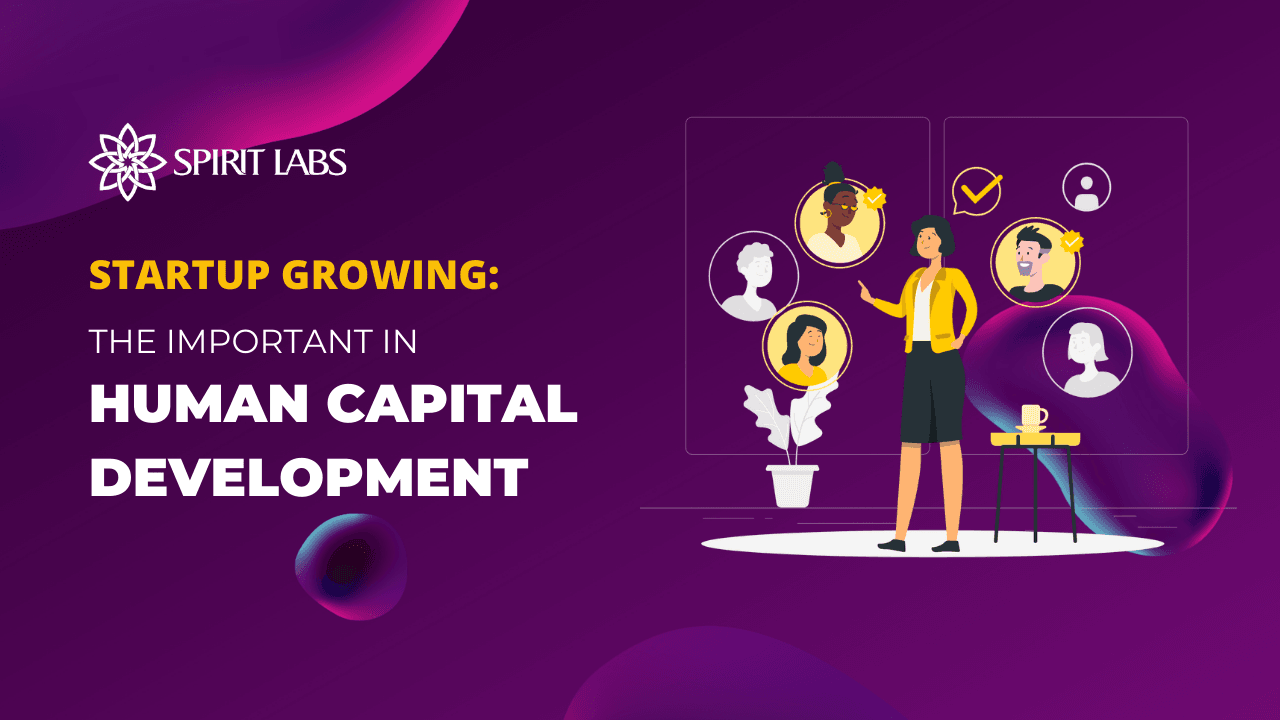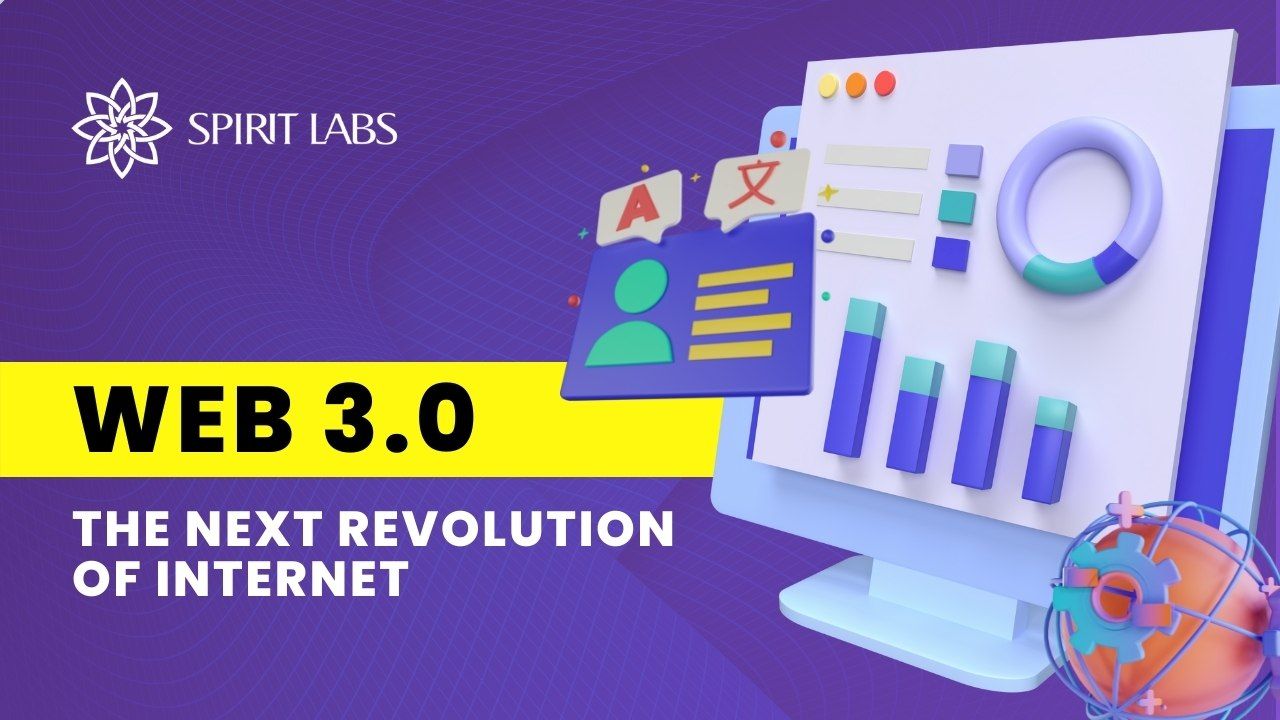
Startup Growing: The Important in Human Capital Development
Human capital development is one of the biggest concerns of every company, especially for the startups in the very first period of entering a market. In this article, we discuss the importance of human capital development for the startups as well as the key to gain human capital and develop them.
Almost every business today will claim that their employees are their most valuable and significant asset. Employers must invest time and money in training and hiring employees to improve their personal and interpersonal skills in order to create human capital solutions effectively.
One of the most crucial aspects of a company's success is its human capital. There are four main pillars: education, health, employment and environment, including the regulatory environment, infrastructure and other factors that promote the development of human capital in which people may learn and apply new ideas, acquire new competences, and improve skills, behaviors, and attitudes.
We can state that human capital development revolves around:
- Talent management
- Change management
- Performance management
- HR management
- Learning and development
- Succession planning
- Strategic planning
- Workforce planning
- Knowledge planning
The analysis found that human capital was much more important than any other resources . This often means co-founders, employees, partners, customers and other stakeholders who can help to grow the startup. However, in this part, we would like to talk more about “recruitment”, which is the most familiar concept when talking about building a team for a startup.
According to a Navigos Group survey on startup human resources, startup recruiting needs are on the rise: 53% of firms have recruitment needs within the first three months of operation, and 17% have recruitment needs after 3–6 months. The best time for companies to recruit high-quality employees is after they’ve invested 1–3 years developing their product.
Recruiting employees for an organization is a difficult process. Reaching out to the best talent and then hiring and retaining them requires money, time and effort. Despite this difficulty, the recruiting efforts are critical for a startup’s success. Many startup failures are caused by a lack of investment in finding and hiring quality employees. They also fail since the existing employees’ morale is low because they have no idea what they’re doing. As a result, a startup founder should do a recruitment strategy in your startup checklist. You must remember that the first few individuals you hire will establish organizational procedures and establish the best or worst working practices, therefore you must be very selective in who you choose.
Ensures to hire Right Person
Don’t make the costly error of hiring the wrong person during the startup period; it could end up being a big problem in the long run. As a company founder, you may be searching for someone who is willing to put in the same amount of effort as you and is willing to work long hours, attend unexpected meetings, and travel to events. The job description should emphasize the type of candidate you’re searching for, as well as all of the candidate’s expectations, so they know what they’re getting into. Hiring the incorrect individual can stifle your startup’s growth, resulting in a slew of losses.
Employer Branding is important
As a startup, your company’s profile and online presence is extremely significant in hiring the right people. It establishes the first impression of your company. People start to find out more about you: a fair working environment, a training system, a clear roadmap and if you build a positive employer brand from the start, it will bring you a lot of benefits in the long run.
Employee training and development refers to a company’s ongoing attempts to improve its employees’ performance. Training and development has become a critical component of strategy in recent years. More business owners are realizing that investing in employee training and development not only motivates employees, but also allows them to build a highly trained staff.
Essentially, a training program comes with very precise and measurable goals such as learning how to perform a particular procedure with accuracy or how to operate a piece of machinery.
On the contrary, a developmental program centers on acquiring broader skills that can be applied in a wide range of situations. They include skills such as decision-making, communication, and leadership.
Benefits of Employee Training and Development
Although there are a few drawbacks in investing in employee training, the benefits from such programs outweigh them significantly. The benefits include:
1. Addressing weaknesses
If a company owner evaluates his workforce closely, he is likely to find out the lack of certain skills from the employees. A training program presents an opportunity to instill the needed skills in the employees. Thus, a development program helps to expand the knowledge base of all employees. In such a way, As a result, every employee will be able to cover for a colleague and complete any task efficiently.
2. Improved performance
An employee who receives training on a regular basis has a better chance of increasing his work productivity. Every employee will be well-versed in the safety measures and necessary procedures to follow when fulfilling their duties. An employee’s confidence can be boosted by a training program since he will have a better understanding of the sector and the requirements of his job.
3. Boosts company profile and reputation
Employee training is not just good for the employees but also for the firm. Conducting frequent training and development programs is one way of developing the organization’s employer brand, thus making it a prime consideration for the top employees. A company that trains its employees will be more attractive to potential new employees, particularly those looking to advance their skills.
4. Innovation
When employees receive consistent training and upskilling, it flourishes their creativity. The training programs help employees to be more independent and creative when they encounter challenges in their work.
Human value is always the most important aspect for any firm so it must be further enhanced. A strong business is one in which an individual plays a significant role in establishing the company’s direction. For example, to effectively enter the worldwide market, an Asian business must have a spokesperson who is fluent in English and is familiar with the local culture in order to attract investors in Europe and the Americas.
Transparency is also an important factor for companies. The problem of governance, such as inconsistencies in the distribution of duties and benefits, is one of the most significant obstacles for Vietnamese start-ups. For example, suppose an organization has a person who multitasks and completes KPIs for assigned tasks while still being underpaid, making it very easy for them to be afraid to contribute. Furthermore, only an internal team with a thorough understanding of the business strategy can make the best decisions when moving a start-up into a market with a completely different culture.
We hope that this article has provided you with all of the knowledge you require on human capital development and its value to businesses.


